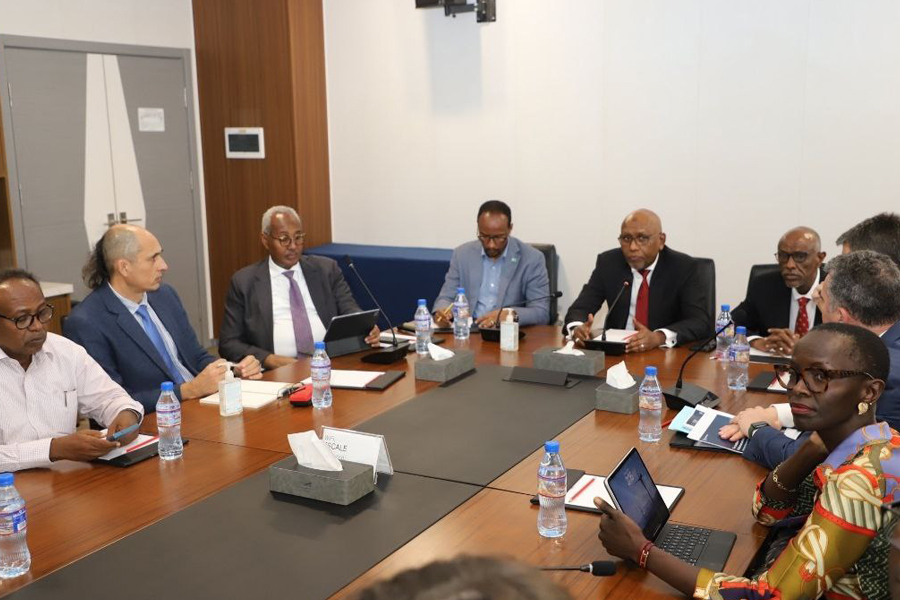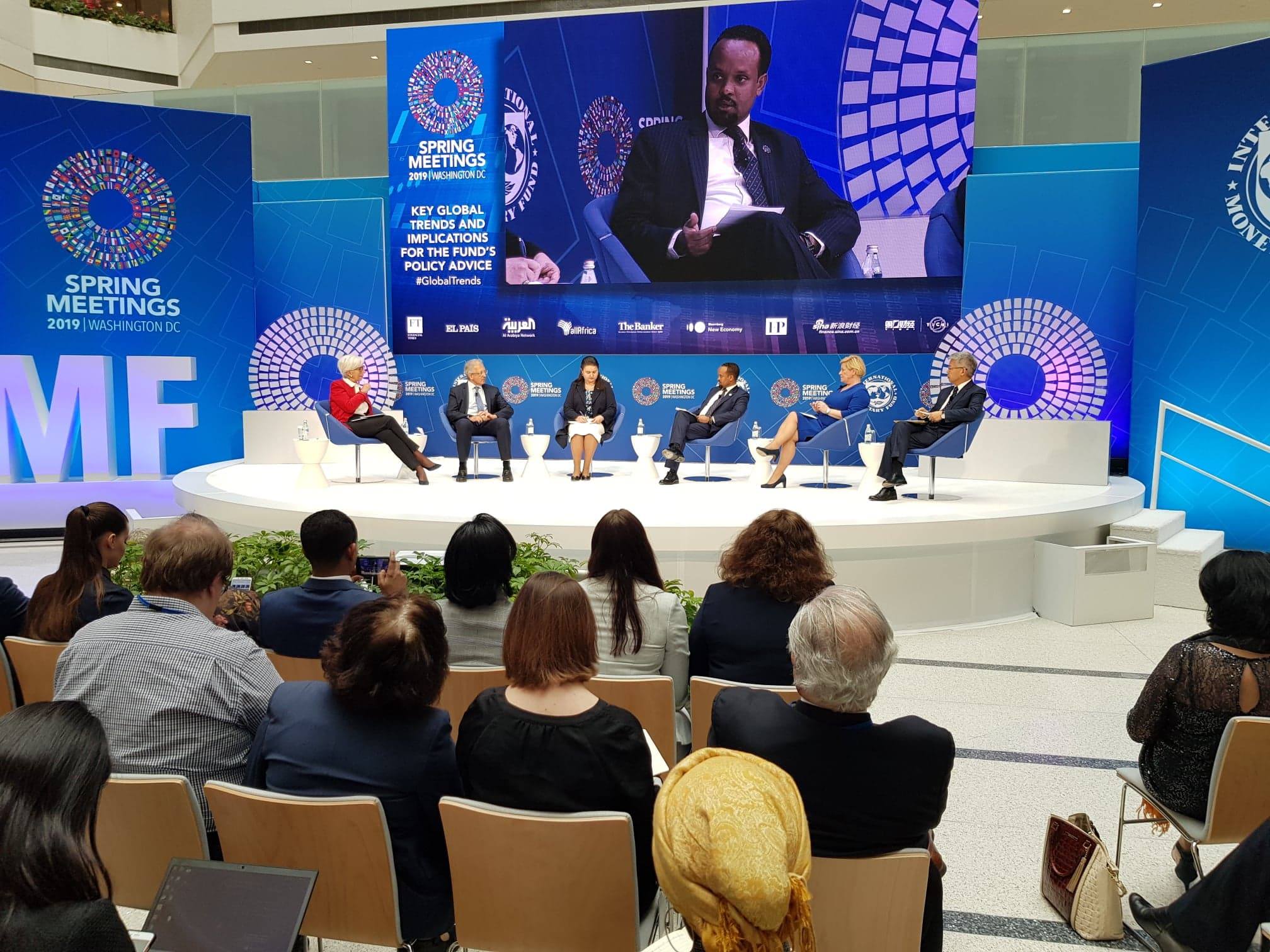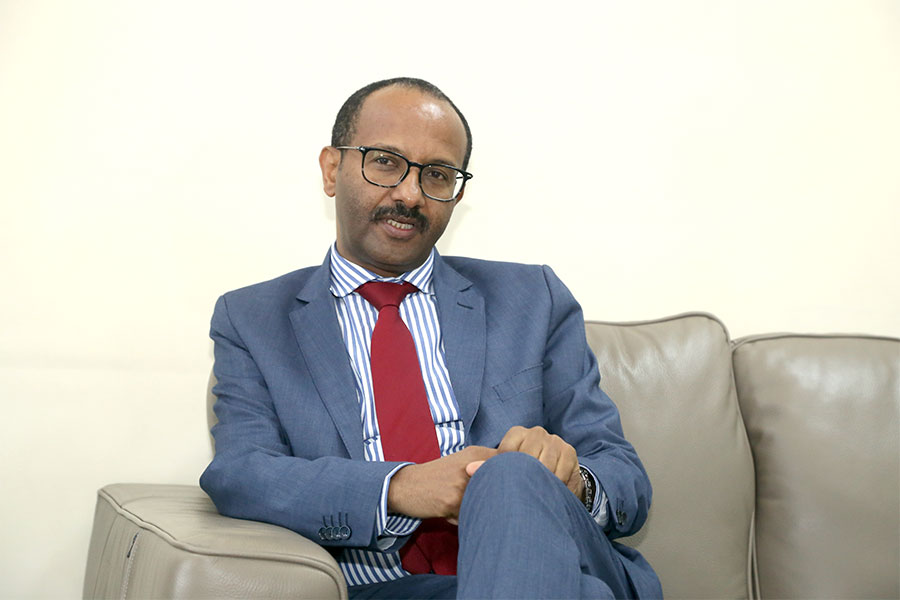
Editorial | Jul 09,2022
Jan 7 , 2023
By Richard Haass
The American baseball player Lawrence “Yogi” Berra is widely quoted as observing, “It’s tough to make predictions, especially about the future.” Whether or not he said it, the point is valid. Nevertheless, here are 10 predictions for the world for the year just getting underway.
First, the war in Ukraine will continue, albeit less intense. Neither Russia nor Ukraine will be able to achieve a complete military victory, if victory is defined as routing the other side and dictating the terms of a post-war territorial or political settlement. Nor will the diplomats achieve victory, if victory is defined as reaching an arrangement both governments are willing to sign and abide by.
Peace requires leaders willing and able to compromise, two conspicuously absent elements (if for very different reasons) on both sides.
Second, while many policymakers are focused on the potential for a war over Taiwan, this seems highly unlikely in 2023. Chinese leader Xi Jinping has his hands full contending with a surge of COVID-19 cases that is overwhelming his country’s healthcare system, raising questions about the competence of the ruling Communist Party and further weakening what was a slowing economy. China has by no means abandoned its goal of taking control of Taiwan, by force if necessary; but while it will continue to raise the pressure on Taiwan, it has most likely put off highly aggressive action for at least a few years.
Third, the sleeper story of the year will be Japan’s emergence as a major geopolitical actor. Economic growth in the world’s third-largest economy has been revised upward to 1.5pc, and defence spending is now on track to double, reaching two percent of GDP. With one of the most capable militaries in the region, Japan will also more closely align itself with the US to deter or, if necessary, defend against Chinese aggression against Taiwan. Even more than is the case with Germany, 2023 will be the year Japan enters the post-post-World War II era.
Fourth, North Korea will almost certainly carry out its seventh nuclear test, in addition to frequent missile tests. Neither South Korea nor the US will be able to prevent such actions, while China, the only country in a position to do so, will hold off using its considerable leverage lest it weakens its neighbour and set in motion dynamics that could cause instability on its periphery.
Fifth, transatlantic relations, stronger for now because of a shared willingness to stand up to Russia’s invasion and help Ukraine, will suffer from increased friction, owing to Europeans’ unhappiness with US economic protectionism and Americans’ unhappiness with the continent’s continued economic dependence on China. Ties could also suffer from emerging differences in the extent of military, economic, and diplomatic support for Ukraine and defence spending levels.
Sixth, the global economy is likely to expand more slowly than most observers currently forecast. The IMF is predicting 2.7pc overall growth, but the reality could well be lower, owing to the knock-on effects of China’s mismanagement of COVID-19 and the trajectory of the US Federal Reserve, which seems determined to continue to raise interest rates to bring down inflation. Political instability in parts of Africa and Latin America, extreme weather events, and supply-chain disruptions will also be a drag on global economic performance.
Seventh, the annual United Nations Climate Change Conference (set to meet in Dubai) will continue to disappoint. With near-term economic concerns trumping medium- and long-term climate considerations, the effects of global warming are likely to get worse before they get even worse.
Eighth, Israel-Palestinian relations will become more violent as Israeli settlement activity expands and diplomacy shows no prospect of bringing about a Palestinian state on terms both Israelis and Palestinians could accept. Instead, a future that could be described as a "one-state non-solution" will come closer to becoming a reality.
Ninth, India will continue to frustrate those who predict great things for it. India will continue to buy arms and oil from Russia and cling to a posture of non-alignment even as it seeks greater help from the West against China. And at home, the danger is that India will continue to become progressively more illiberal and less secular.
Lastly, Iran will likely be the dominant issue of 2023. The protests against the regime will gain traction against the backdrop of worsening economic deterioration and emerging divisions within the leadership over whether to compromise with the protesters or arrest and kill them. The 2015 nuclear deal will not be revived, given Iran’s military assistance to Russia and the US desire to avoid throwing an economic lifeline to the embattled regime.
Iran’s leaders may opt to continue to advance their nuclear-weapons program in the hopes of either achieving a breakthrough or triggering an Israeli strike, a development that would allow them to call for national unity in the face of external attack. Another possibility is that the cohesion of the security forces will give way to something resembling a civil conflict. For the first time since the fall of the Shah in 1979, the future of the Islamic Republic will be in serious doubt.
All this may not make for a happy new year, but it will ensure an interesting one.
PUBLISHED ON
Jan 07,2023 [ VOL
23 , NO
1184]


Editorial | Jul 09,2022

My Opinion | May 11,2024

View From Arada | May 24,2025

Viewpoints | Feb 01,2019

Radar | Aug 05,2023

Fortune News | Jun 22,2024

View From Arada | Oct 26,2019

Fortune News | Apr 13,2019

Sponsored Contents | Jul 24,2022

Commentaries | Sep 14,2024

Photo Gallery | 174241 Views | May 06,2019

Photo Gallery | 164466 Views | Apr 26,2019

Photo Gallery | 154620 Views | Oct 06,2021

My Opinion | 136655 Views | Aug 14,2021
Editorial | Oct 11,2025

Dec 22 , 2024 . By TIZITA SHEWAFERAW
Charged with transforming colossal state-owned enterprises into modern and competitiv...

Aug 18 , 2024 . By AKSAH ITALO
Although predictable Yonas Zerihun's job in the ride-hailing service is not immune to...

Jul 28 , 2024 . By TIZITA SHEWAFERAW
Unhabitual, perhaps too many, Samuel Gebreyohannes, 38, used to occasionally enjoy a couple of beers at breakfast. However, he recently swit...

Jul 13 , 2024 . By AKSAH ITALO
Investors who rely on tractors, trucks, and field vehicles for commuting, transporting commodities, and f...

Oct 11 , 2025
Ladislas Farago, a roving Associated Press (AP) correspondent, arrived in Ethiopia in...

Oct 4 , 2025
Eyob Tekalegn (PhD) had been in the Governor's chair for only weeks when, on Septembe...

Sep 27 , 2025
Four years into an experiment with “shock therapy” in education, the national moo...

Sep 20 , 2025
Getachew Reda's return to the national stage was always going to stir attention. Once...

Oct 12 , 2025
Tomato prices in Addis Abeba have surged to unprecedented levels, with retail stands charging between 85 Br and 140 Br a kilo, nearly triple...

Oct 12 , 2025 . By BEZAWIT HULUAGER
A sweeping change in the vehicle licensing system has tilted the scales in favour of electric vehicle (EV...

Oct 12 , 2025 . By NAHOM AYELE
A simmering dispute between the legal profession and the federal government is nearing a breaking point,...

Oct 12 , 2025 . By NAHOM AYELE
A violent storm that ripped through the flower belt of Bishoftu (Debreziet), 45Km east of the capital, in...